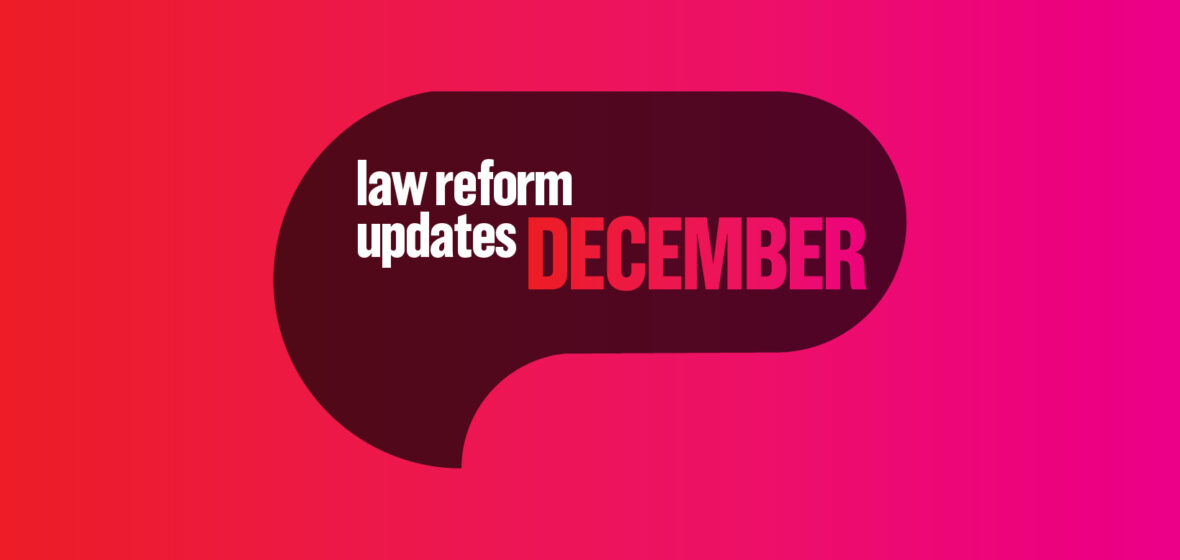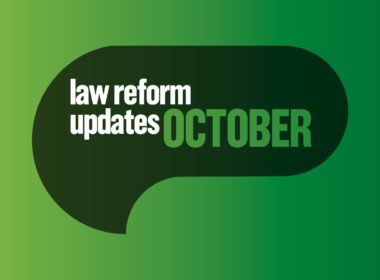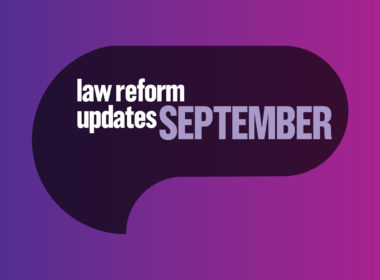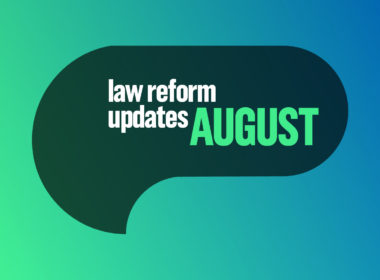Key developments
- Inquiry into National Anti-Corruption Commission legislation
- Legislative Council Inquiry – Property Tax (First Home Buyer Choice) Bill 2022
- Privacy Legislation Amendment (Enforcement and Other Measures) Bill 2022
- Inquiry into missing and murdered First Nations women and children
- Bail: Show cause offences and the unacceptable risk test
- Crimes (Administration of Sentences) Amendment (No Body, No Parole) Bill 2022
- Inquiry into the 2022 federal election
- Inquiry into the appointment of the former Prime Minister to administer multiple departments
- Anti-Discrimination and Human Rights Legislation Amendment (Respect at Work) Bill 2022
- Exemptions for litigation funding schemes
- 2022 Review of the Compulsory Third Party (CTP) Scheme
- Review of Australia’s Modern Slavery Act
- Draft National Principles to Address Coercive Control
- 2022 Review of the Workers Compensation scheme – Question on Notice
- Prosecutorial Disclosure in Criminal Cases in New South Wales
- Safeguard mechanism reform – Consultation Paper
- Statutory review of the Terrorism (Police Powers) Act 2002
- Inquiry into the Aboriginal Cultural Heritage (Culture is Identity) Bill 2022
- Family Law Central Practice Direction
Inquiry into National Anti-Corruption Commission legislation
The Public Law Committee contributed to a Law Society submission to the Law Council of Australia relating to the inquiry into the National Anti-Corruption Commission (‘NACC’) legislation.
The National Anti-Corruption Bill 2022 (‘Bill’) and the National Anti-Corruption Commission (Consequential and Transitional Provisions) Bill 2022 were introduced on 28 September 2022 and both Bills referred to the inquiry.
The Law Society, on balance, supported the passage of the Bill. The key issues dealt with in the submission included the application and reach of the legislation, the Constitution and powers of the proposed NACC.
The key issues the Law Society was concerned about related to the appropriate thresholds for public hearings and investigations, strengthening the audit and proactive powers for the NACC Inspector, and the ongoing cultural impact of mandatory reporting obligations for heads of Commonwealth agencies. The Law Society supported the thresholds set out in the Bill. The Law Society’s ongoing concern is that a weaker federal model might signal to future NSW governments the possibility of diluting the NSW model for anti-corruption.
Legislative Council Inquiry – Property Tax (First Home Buyer Choice) Bill 2022
The Law Society members of the Revenue NSW/Law Society Liaison and Property Law Committees contributed to a submission to the Legislative Council’s inquiry into the Property Tax (First Home Buyer Choice) Bill 2022 (‘Bill’).
The Law Society submitted that, as a matter of principle, unpaid property tax should not be a charge on the land. Unlike land tax and council rates, which are payable despite a change of ownership (subject to any exemptions), the continuance of property tax depends on the subsequent purchaser’s choice whether to opt-in to the property tax scheme, if eligible.
From a conveyancing and administrative costs perspective, we raised concerns about the need for an additional conveyancing investigation to determine whether a particular property is subject to a property tax charge, and if so, the amount which needs to be cleared on settlement. In the early stages of the implementation phase, the number of properties subject to the property tax will be small. However, as a matter of prudent conveyancing practice, every purchaser in NSW will need to have their solicitor or conveyancer check whether the property being purchased is subject to a charge for unpaid property tax. If so, clearance of that charge will need to be arranged on or prior to settlement. This will add complexity and expense to the conveyancing process which, in our view, is not proportionate to the revenue to be protected.
We also submitted that the interplay and interpretation between the Bill and the Duties Act 1997 requires further clarification to ensure that references to duty being chargeable are subject to the exemptions under the Act.
The Bill passed the NSW Parliament on 10 November 2022.




